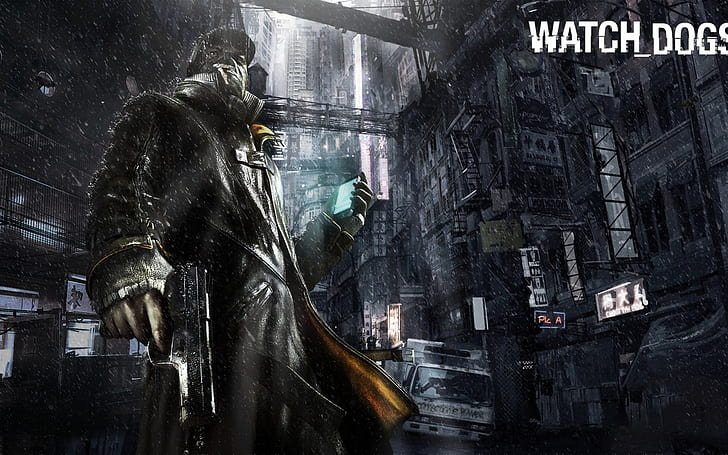Watch Dogs, developed by Ubisoft, stands as a landmark title in the world of open-world gaming. Released in 2014, the game captivated players with its unique blend of action, stealth, and cutting-edge hacking mechanics. Set in a richly detailed version of Chicago, players take on the role of Aiden Pearce, a skilled hacker seeking revenge in a city controlled by a vast surveillance system. This comprehensive guide delves into the development, gameplay, and lasting impact of Watch Dogs, Watch Dogs Legion Download Free game that pushed the boundaries of immersive gameplay and storytelling in the PC gaming landscape.
Significance in the Genre of PC Games
Overview Context
Watch Dogs is pivotal in the evolution of the open-world genre, blending hacking mechanics with traditional action-adventure elements. It introduced real-time environmental manipulation via hacking, setting it apart from other games.
Progress
The game demonstrated technological progress in its time, particularly with its dynamic environment and the integration of hacking into the core gameplay. This progression was evident across all supported platforms, with the PC version offering the best graphical fidelity.
Platforms
Released on multiple platforms, the PC version stood out due to its superior visuals, modding capabilities, and performance optimization for high-end systems.
Date of Team Release
Watch Dogs was officially released on May 27, 2014, after multiple delays that raised anticipation levels among players.
Mechanisms of Gameplay Dynamics
The gameplay revolves around hacking systems like traffic lights, cameras, and communication networks to control the city, evading enemies or creating chaos. Stealth and combat are equally essential, allowing players to approach situations in diverse ways.
Controls in an Open-World Environment
Watch Dogs utilizes traditional third-person controls while incorporating hacking commands, making the gameplay versatile. The seamless integration of hacking into both combat and traversal was a groundbreaking feature.
Options for Customizing a Character
While character customization in Watch Dogs was minimal, players could choose different outfits and weapons for Aiden Pearce, providing slight personalization options.
Rewards
Completing missions and side activities rewarded players with experience points, new weapons, and upgrades for Aiden’s hacking abilities.
Progression System
Game Modes and the Realistic Physics Engine
The game’s physics engine played a crucial role in delivering a realistic open-world experience. Watch Dogs offered various game modes, including a single-player campaign and a multiplayer mode integrated within the open world.
Campaign and Difficulties
The campaign followed Aiden Pearce’s journey for vengeance, with varying difficulty levels, allowing both casual and hardcore gamers to enjoy the game at their preferred challenge level.
Add-ons and DLC
Watch Dogs featured downloadable content (DLC) like the Bad Blood expansion, offering additional storylines, missions, and weapons, further enhancing the experience.
Soundtrack and Audio Effects
The soundtrack was atmospheric, with audio effects that intensified the action. The sounds of the city, from traffic to police sirens, created a living, breathing world.
Graphics and Visuals
While the game was criticized for graphical downgrades from its original E3 presentation, the PC version still delivered high-quality visuals with detailed environments and character models.
Day-to-Night and Weather Cycle Conditions
Watch Dogs featured a dynamic day-night cycle and weather effects, adding to the immersion. Rain, fog, and changing light conditions affected both visibility and gameplay tactics.
Scenes and User Interface (UI)
The game’s scenes were cinematic, and the user interface was clean, making hacking and navigation seamless. The UI played a crucial role in the overall game experience, ensuring players could easily access information and commands.
Encounter Menu: Navigating the Game’s HUD and Availability
The HUD (Heads-Up Display) in Watch Dogs provided essential information, such as health, available hacks, and mission objectives. It was intuitive, enabling players to navigate the game world with ease.
Community Engagement and Reception
The Watch Dogs community was active, especially regarding mods and online multiplayer modes. Players shared experiences, tips, and custom content, making the game more dynamic post-launch.
Influence and Reviews
Critical Praise
Watch Dogs received generally positive reviews for its innovative mechanics and open-world design, though some criticized its story and the graphical downgrades. Nevertheless, the game was praised for pushing boundaries in the open-world genre.
Impact on Later Watch Dogs PC Game Download Titles
Sales Results and Legacy of Commercial Success
Despite some early criticism, Watch Dogs achieved commercial success, selling over 10 million copies worldwide. Its influence can be seen in later titles, such as Watch Dogs 2 and Watch Dogs: Legion, which refined and expanded upon the original’s gameplay elements.
Long-Term Popularity
The game’s blend of action, hacking, and stealth remains popular among players, keeping its community active through mods and discussions about its influence on the genre.
Hold Influence Over PC Games Till Date
Tricks and Tips: Strategies to Help Win
Success in Watch Dogs depends on mastering hacking, stealth, and combat. Tips include using the environment to your advantage, hacking strategically during combat, and completing side missions for extra rewards.
Maximizing Gains
To maximize progression, players should focus on upgrading Aiden’s hacking abilities, which will allow for more control over the game world and greater tactical advantages.
Conclusion
Watch Dogs remains a significant title in the open-world genre, thanks to its innovative gameplay and immersive environment. Its impact on future games is undeniable, and its legacy continues to resonate with fans of action-adventure titles. Whether playing for the first time or revisiting its world, Watch Dogs provides an experience rich in strategy, customization, and dynamic interaction with the game’s environment.




